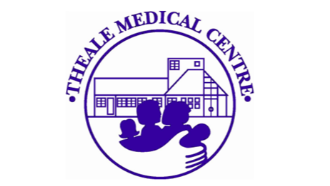Private Prescriptions
Private prescriptions can incur higher charges for patients than NHS prescriptions. Patients may ask their GP for their medicines to be supplied on the NHS using an FP10 form. Alternatively, private clinicians may write to NHS clinicians requesting for treatment to be continued within primary care. Please note NHS clinicians are under no obligation to issue an FP10 for patients who have had medicines prescribed privately. Please see further details below explaining why your GP may not be able to transfer your private prescription onto an NHS prescription.
Why am I being given a private prescription?
If you have seen a doctor or other healthcare professional privately and they need you to start a treatment, you may be issued with a private prescription. Private doctors are not allowed to issue NHS prescriptions. This is because private consultations are not part of the NHS.
Can I ask my GP for an NHS prescription if I have seen the clinician privately?
If you enter the NHS for further treatment after your initial prescription was dispensed privately, then your GP may be able to issue a prescription on the NHS. However, there are a number of reasons why your GP may not be able to transfer your private prescription onto an NHS prescription. These include:
- The medicine being recommended on your private prescription is not allowed on an NHS prescription.
- If a medicine is not allowed on an NHS prescription (blacklisted) then it cannot be prescribed by anyone on the NHS.
- The medicine being recommended is not provided by your local NHS.
- In your local area the medicine may not be included in the normal NHS treatment for your condition, therefore it would not normally be recommended on an NHS prescription.
- The medicine being recommended is not included in your local medicine formulary.
- A medicine formulary contains a list of preferred local medicine choices. You may be offered a preferred alternative on NHS prescription instead of the medicine on your private prescription.
- The medicine being recommended is only suitable for specialist or specialised prescribing.
- Normally, NHS specialists and not GPs, would prescribe the medicine. So, GPs may be unfamiliar with the medicine and how it should be prescribed and reviewed. GPs would not normally prescribe these medicines on NHS prescription.
- Your GP may not agree with the choice of medicine being recommended.
- Your GP may not agree with the choice of medicine recommended by your private clinician. You may be offered an alternative on NHS prescription.
- The medicine is not what would normally be prescribed for you first.
- In your local area other treatments are recommended to be tried and considered first. You may be offered one of these medicines on NHS prescription first.
What is the difference between a private prescription and an NHS prescription?
With a private prescription you will need to pay for the full cost of the medicine plus a dispensing fee, which covers the pharmacy’s costs. The pharmacy will calculate the total cost, and this is paid by you or your medical insurance company. The total cost can vary at different pharmacies, so it is worth asking more than one pharmacy how much they will charge you to provide the prescription. Sometimes private prescriptions cost less than the NHS prescription charge. With an NHS prescription you pay an NHS prescription charge per item (a fixed tax) unless you are entitled to free NHS prescriptions.
How do I get my medicines if they are on a private prescription?
If you have been given a private prescription by your healthcare professional, you can have this dispensed at a pharmacy of your choice.
A private prescription is normally written on letter headed paper and has all the information about the medicine and how you need to take it. The pharmacy will inform you how much they will charge you to provide the prescription. The pharmacy has to keep the private prescription for their records once your medicine has been dispensed.
I cannot afford to pay for the treatment privately, what can I do?
It is important to consider all potential costs when using a private consultant and this includes medicine costs. If your GP is unable to prescribe the medicine on an NHS prescription for one of the reasons documented, you should speak to the clinician that issued you with the private prescription to discuss what to do next. This may include them recommending an alternative less costly medicine or one which may be prescribed by your GP on an NHS prescription.
My GP has offered me a private prescription even though I am being seen on the NHS. Why is this?
There are a few rare circumstances where NHS healthcare professionals may issue private prescriptions to their NHS patients. These are:
- Malaria prophylaxis for protection when travelling abroad or medicines only needed in case there is an illness or injury when travelling abroad.
- Treatments that may be needed whilst travelling are not considered suitable for prescribing on the NHS. The traveller should pay the cost of these treatments.
Travel vaccines that are not allowed on the NHS, such as yellow fever or rabies vaccine. - Some vaccines for travel are not allowed on the NHS and therefore travellers needing these vaccines will need to pay for them privately.
- Items which are blacklisted or not available for specific conditions on the NHS.
In very rare circumstances, your healthcare professional may think that an item not available for prescribing on the NHS is suitable for you and with your agreement may need to issue a private prescription for this item. Your healthcare professional may charge you a fee for writing a private prescription.
For more information, please see the Information on prescriptions issued after a private consultation leaflet.



